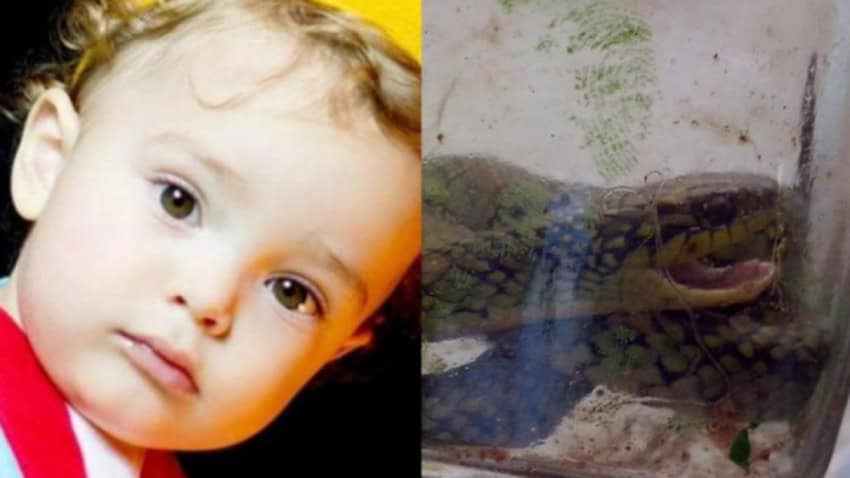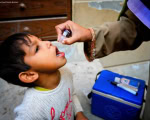RIO DE JANEIRO (Web Desk) – Vipers are usually the ones who do the biting, but a one-year-old boy from Brazil gave the venomous snake a taste of its own medicine, biting it on the head and killing it.
17-month-old Lorenzo was playing with the family dog in the garden of his home, in the town of Mostardas, Brazil’s Rio Grande do Sul state, when he apparently came face to face with a pit viper, the Oddity Central reported.
His mother Jaine Ferreira Figueira, who was doing some work inside the house, heard some noises and turned around to go check on the boy, only to see him in the room with a snake in his mouth and blood on his clothes.
She instinctively shouted for her husband Lucier. They quickly got in their car and took Lorenzo to the Sao Luiz hospital, some 175 km from Porto Alegre, but not before putting the snake in a jar, so doctors could identify it and administer the right anti-venom.
Only, it turned out there wasn’t much need for medical attention. Doctors checked his body for any snake bite marks, but couldn’t find any, and tests confirmed there was no venom in his system. The only one hurt in the encounter was the poor pit viper.
“He bit the pit viper very close to the head which eventually immobilised the snake and prevented it from biting him.” Dr Gilmar Carteri said.
“The child was very scared, I think it was a self-defense instinct that kicked in or maybe he thought it was a toy.”
The latter seems a bit unlikely, as the snake would have probably bitten him in the process.
Initially, the parents thought that the dog had killed the viper, but after inspecting the snake, doctors confirmed that it had actually been the one-year-old boy.
For years, scientists have debated that ophidiophobia – the fear of snakes – may actually be instinctive and vital to the survival of human kind in allowing a potentially deadly threat to be reactive to immediately. Lorenzo’s reaction, instead of simply freezing at the sight of the snake or trying to play with it, could be considered a confirmation to this theory.
Pit vipers inhabit various South American countries, like Brazil, Argentina and Paraguay and their bite can be fatal without swift medical intervention. Symptoms include hemorrhage and kidney failure.

















